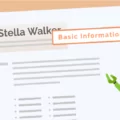There are many interview questions that you’re likely to get when you go in for a job interview. Understanding and preparing hypothetical interview questions can help you get through your job search more effectively. Situational interview questions are one of the most common job interview questions you might be asked, as they allow a hiring manager to understand more about how you approach work and problem-solving. Here’s how you can answer these types of questions.

Tips for Answering Situational Interview Questions
What Are Situational Interview Questions?
Situational interview questions are trying to understand how you would behave in a specific situation. The recruiter will typically ask you questions that encourage you to talk about a similar situation you were in at a past job, showing off your skills and talents. Here are a few examples of situational interview questions:

- What do you do when one of your team members has an emergency during a group project?
- Have you ever had a stressful situation to deal with at work?
- How do you approach a difficult client?
- What is an example of a time when you needed to make a good impression on someone?
- How do you typically approach projects with a tight deadline?
- Have you ever had to fire a client?
- What is your biggest professional accomplishment?
Most of the time, situational interview questions will focus on past experiences, even more so than other types of interview questions. If you see a question that’s asking you to talk about a situation from your past, that’s typically considered a situational interview question.
Skills To Bring Up When Answering Situational Interview Questions
Most of the time, you’re going to be discussing soft skills when you’re answering situational interview questions. Here are a few skills that you’ll want to focus on in your questions and answers:
- Problem-solving skills
- Communication skills
- Teamwork
- Adaptability
- Strong work ethic
- Attention to detail
- Customer satisfaction
- Interpersonal skills
- Decision-making skills
- Time management
Common situational interview questions will prompt you to talk about these types of skills. For example, if you’re getting the question, “How do you approach projects with a tight deadline?” any answer you come up with should center around time management and adaptability.
Tips for Responding to Situational Interview Questions
So, how do you write your sample answers to these questions? There are a few points to keep in mind when you’re trying to come up with answers to these questions.
The first skill to learn about is the STAR method. This is a method for answering interview questions where you go over the Situation, Task, Action, and Result to give a great answer to your hiring manager. A good answer will typically follow this path because it allows you to focus on not only a positive outcome but also the system you used to get there.
It’s also a good idea to have a few situations in mind before you come to the interview, but avoid memorizing sample answers outright. While it’s good to think about situations where you had issues with a coworker, for example, you shouldn’t prepare a complex answer to the question, “What would you do if there was a problem with someone else in your work environment?” Interviewers value your ability to think on your feet, and they want to see that interviewees are able to answer questions on the go.
Lastly, know what skills you should be prioritizing in your interview. Reread the job description, look up the company website or related news, and go over any information you’ve received directly from the company or from the hiring manager. Prioritize specific skills that you know the company is looking for. Those skills should come through when you’re answering situational interview questions.
FAQ: Situational Interview Questions
There’s no such thing as a “situational interview,” but instead simply questions that center around specific situations. If you’re planning to go into an interview for a position that often utilizes critical thinking skills, for example, you’re likely to get a lot of situational and behavioral questions. Preparing for those questions in advance can help you answer them more effectively.
Two question types that have a lot of overlap are behavioral interview questions and situational interview questions. The difference is that a behavioral question will ask about hypothetical situations, whereas a situational question will ask about real experiences that you’ve had. If you look at lists of situational interview questions, you’ll see questions like, “Tell me about a time when you had a tight deadline.” Behavioral questions, on the other hand, might be along the lines of “Tell me how you would approach setting up a new social media presence for a company.”
If you get a situational interview question and you’ve never had one of those experiences, your approach should be to start by acknowledging that this hasn’t happened to you. Then launch into a discussion of how you would approach it. Go through the thought process you would have in the moment, as well as any follow-up questions you might have or general information you would need in order to complete your experience.








